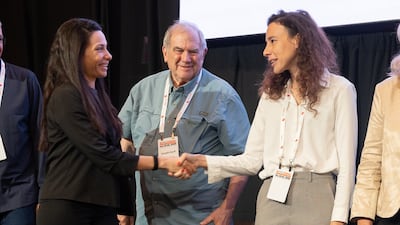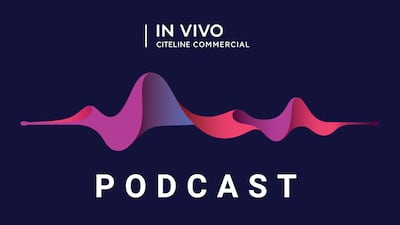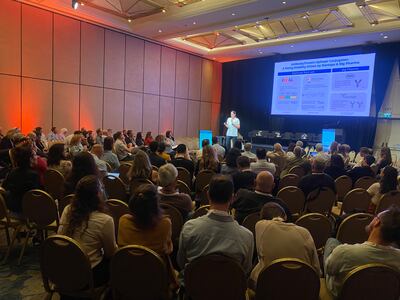
Innovation
The Lioness non-surgical silicon ring implant is designed to put an end to pre-term births, sparing maternal anguish and saving health system costs. PregnanTech won the Biomed Israel 2025 medtech start-up award, and Limor Sandach told In Vivo how a non-digital technology beat off stiff competition.
In the latest podcast interview, Phil L'Huillier, CEO of Scancell, discussed the company's work in cancer vaccine development, and its selection as the first British biotech to be a part of the NHS Cancer Vaccine Launch Pad.
Trojan Bio’s proprietary platform, based on engineered antibodies that activate the immune system to fight cancer in the same way as common viral infections, won Biomed Israel's 2025 biopharma start-up award. CEO and cofounder Anat Burkovitz said the technology is attracting investors' attention.
Agnès Arbat, CEO of Oxolife and winner of the EU Women Innovators Prize, joins In Vivo to discuss OXO-001, a novel non-hormonal treatment aimed at improving embryo implantation in IVF. She shares insights from her biotech journey and the future of fertility innovation.
Despite limited evidence of commercial impact, pharmaceutical companies are making massive strategic investments in AI biologics platforms. The question isn't whether the technology shows promise; it's whether that promise can translate to measurable business results.
In Vivo sits down with Ying Tam, CSO at Acuitas Therapeutics, to discuss the company's role in delivering the first personalized CRISPR treatment to an infant and the clinical implications of new lipid nanoparticle technologies.
When it came to AI-related deals, the second quarter of 2025 was characterized by mostly modest financings.
Although intracerebral hemorrhage accounts for only 13% of all strokes, it is responsible for approximately 40% of stroke-related deaths. A Belgian biotech is looking in unusual places to rectify this situation, namely in a tick’s mouth.
A discussion with Karen Harris, CFO of the Alzheimer's Drug Discovery Foundation, about the foundation's investment strategy, biotech and investor sentiment at the recent BIO conference and what innovations give her hope for Alzheimer's patients.
While biopharma companies experiment with genAI, agentic AI is rapidly shifting the work paradigm towards one of autonomous digital workers that can handle entire process flows.
UK biotech targets the root cause of metabolic disease while preserving muscle mass in a crowded obesity market.
Qubit Pharmaceuticals and Sorbonne University launched a quantum AI model that could slash drug synthesis requirements and enable exploration of previously undruggable targets.
Jason Menzo, CEO of the Foundation Fighting Blindness, says the organization is adapting its funding strategy, navigating regulatory challenges and accelerating the translation of academic discoveries into industry-led clinical development.
Biotech companies are pursuing diverse AI strategies beyond expensive custom data generation: foundation model fine-tuning, data-efficient computational methods and targeted proprietary datasets. In Vivo takes a look at some examples.
While big pharma pours billions into creating new anti-aging molecules, a Belgian startup has taken a different path: combining existing safe drugs with AI precision. The early results suggest it might be onto something revolutionary.
Devika Wood, CEO of Brain+, explains the importance of developing health tech solutions for dementia and the growing need to both raise awareness and improve overall access to nondrug interventions like CST.
Thijs Spoor's bet on lead-212 is paying off as Perspective Therapeutics advances three clinical programs with promising early efficacy signals and a comprehensive manufacturing strategy.
J&J's EMEA head of digital solutions, Julia Fishman, talks about the hurdles in scaling digital innovation and what’s up next on J&J’s innovation road map. Robot-assisted surgery pioneer Ivo Broeders gives his perspective on the difficulties in clinical adoption.
A German biotech has solved a fundamental physics problem that has limited mRNA therapeutics to injectable vaccines. Its breakthrough stabilizer technology allows mRNA particles to survive the mechanical stress of inhalation delivery, opening the door to treating chronic respiratory diseases.
CEO Judy Chou brings big pharma experience to tackle chronic inflammation with the company's first-in-class PSGL-1 targeting therapy.















